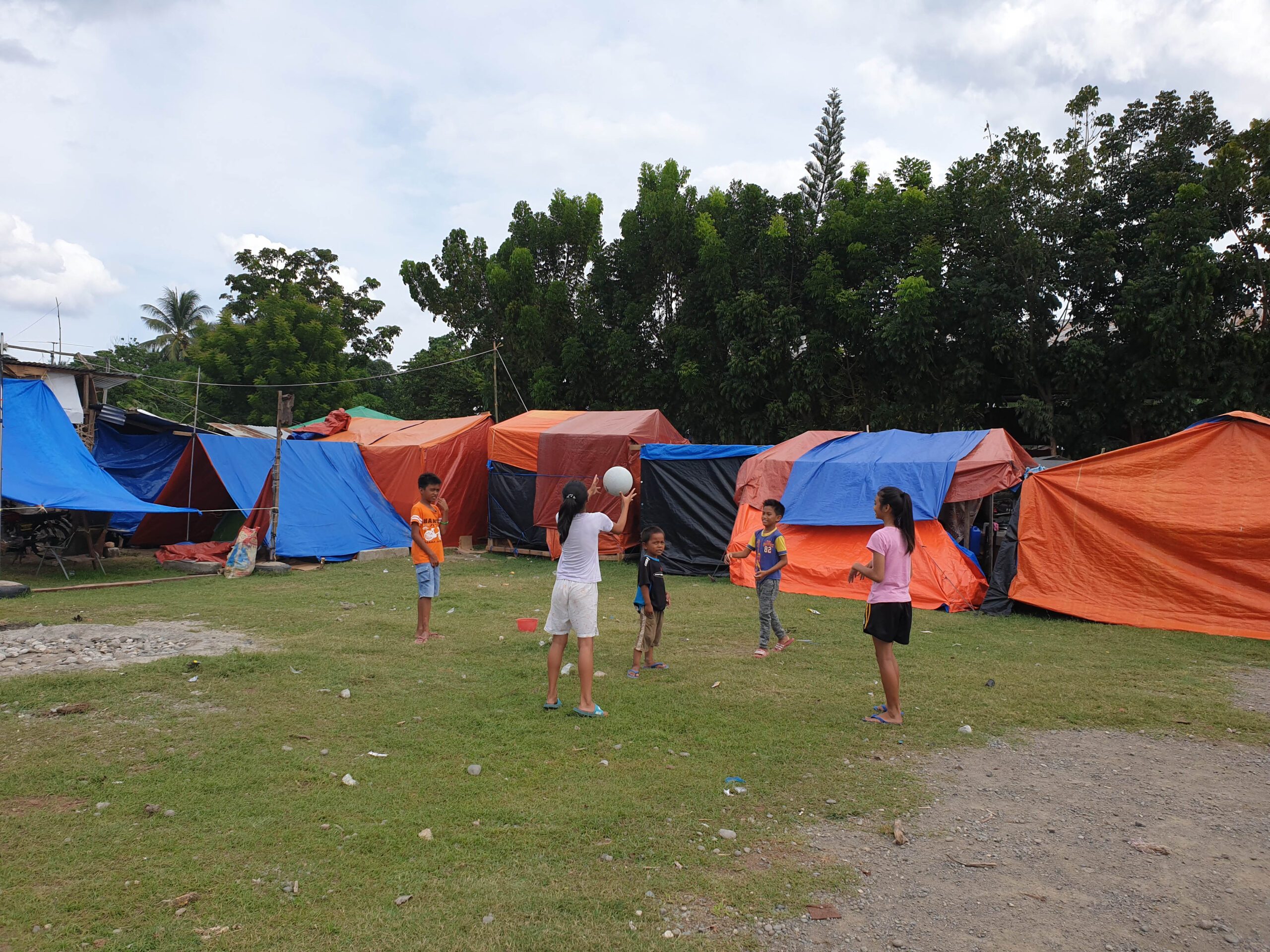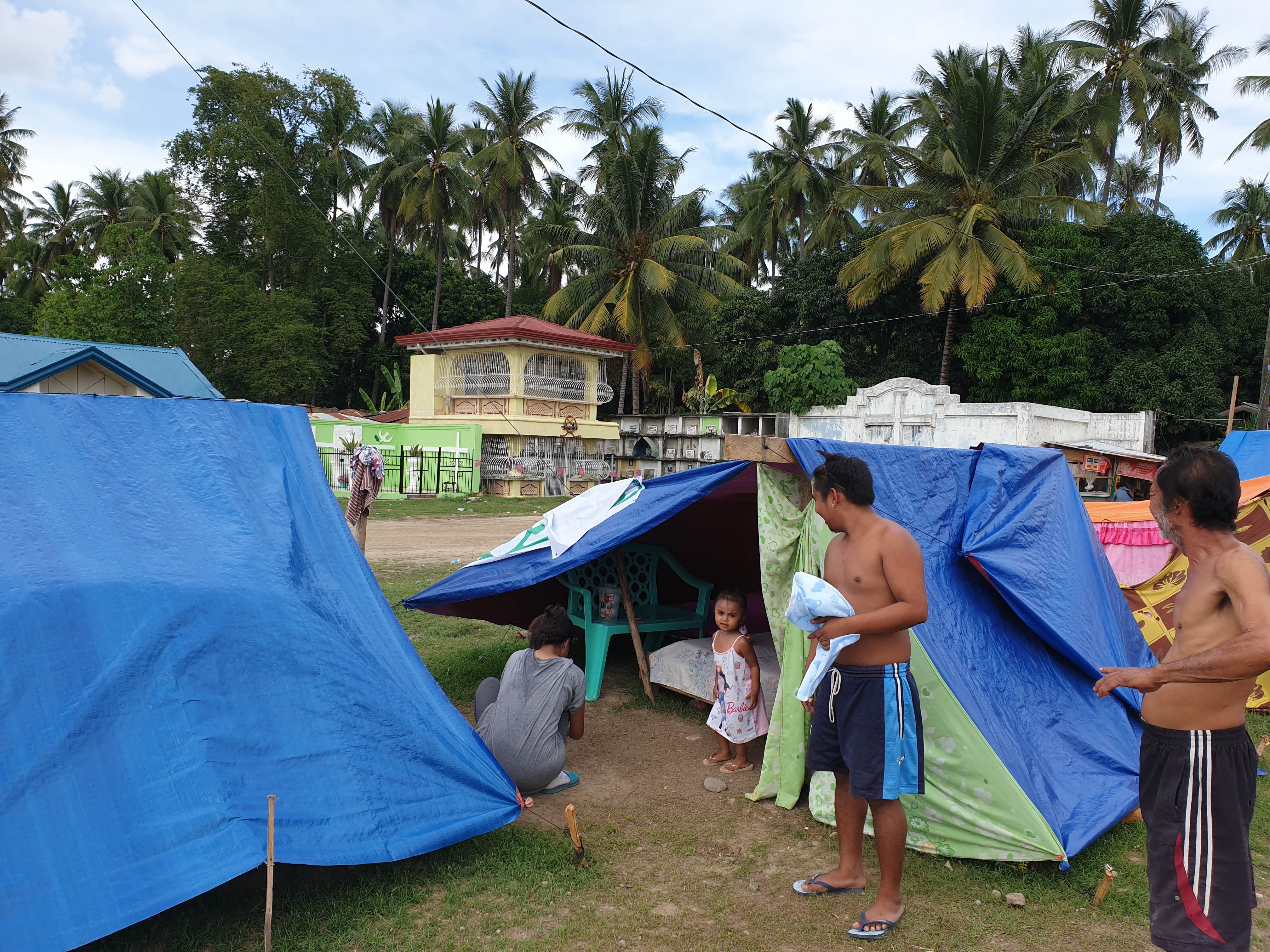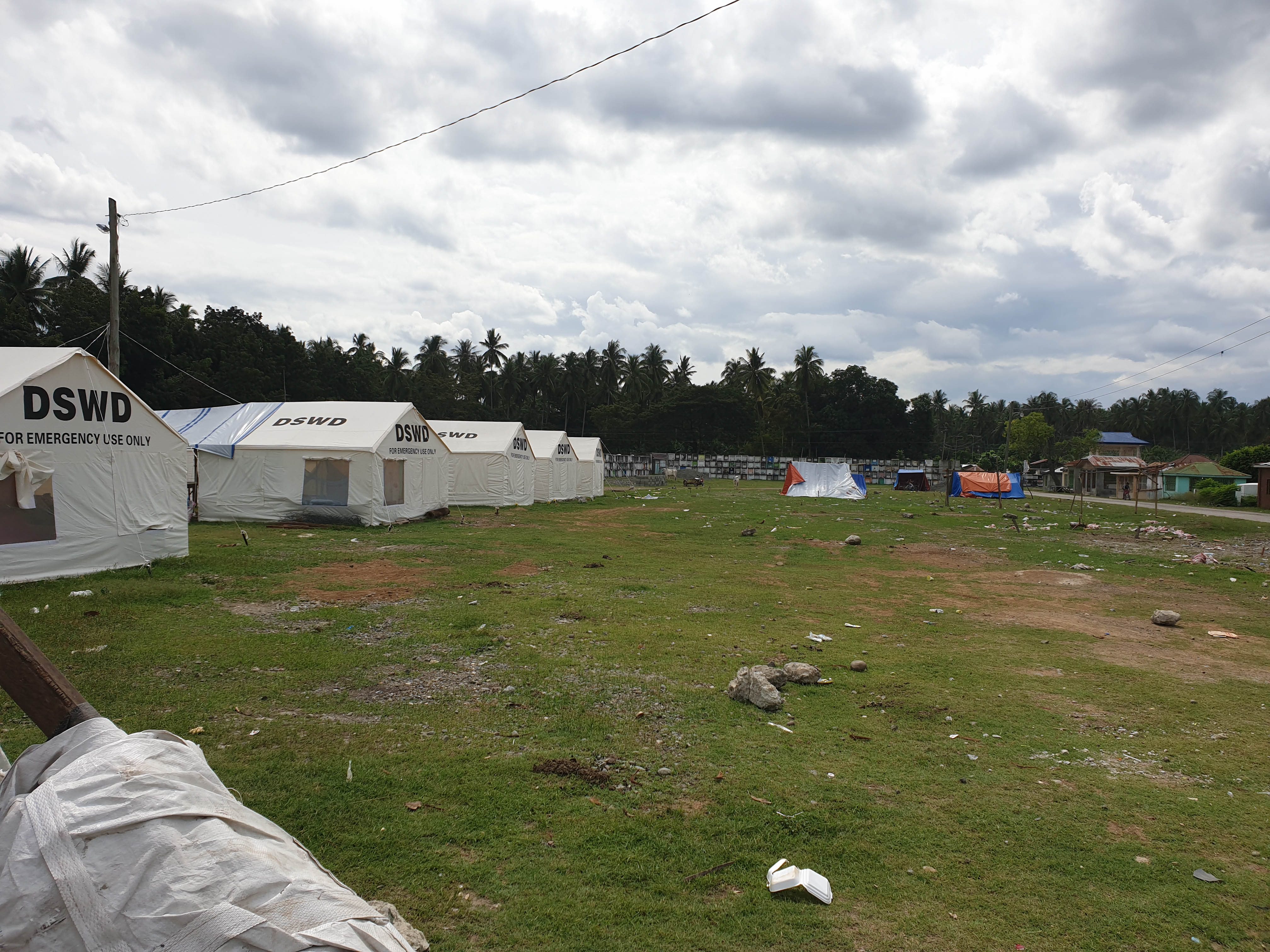SUMMARY
This is AI generated summarization, which may have errors. For context, always refer to the full article.

DAVAO DEL SUR, Philippines – As far as 50-year old Erlinda Gecera can remember, she had not miss a single Noche Buena, even if her family was not affluent.
“Even when I got married to Magarito and had children, we had food on the table for Noche Buena, even how simple these were,” Gecera of Padada town here said.
It will different for her family this year, when Noche Buena isn’t even a priority.
“We are not short of food because of the relief goods we have been receiving. But we will skip this year’s celebration,” Gecera said outside her tent near the public cemetery in Quirino district.
What is important, she said, was that she and her family of 8 were safe after the magnitude 6.9 earthquake earlier in December killed 9 persons, injured over 20 others, and damaged structures, including houses.
“We are thankful that we are safe. That’s more than enough,” Gecera said, adding that another obligation she had missed as a Catholic was the Simbang Gabi or dawn mass.
“People do feel they are safe so they would rather stay here at the evacuation center,” she said.

Karl Rellon, 25, is also Catholic and has not gone to the Simbang Gabi.
“If we will celebrate, we will just open canned goods and cook rice,” Rellon, who previously worked in a hardware store in Digos City, said.
Like Gecera, Rellon said they had more than enough food as relief goods continued to pour in.
“But it is difficult to be living in a tent,” he said.
Rellon’s tent is just across the so-called “apartment” at the public cemetery here.
“But we are thankful to be alive,” he said, as his 5-year-old daughter played nearby.
Arnold Rellon, 55, a bachelor, said they were trying to cope with the situation to the best they could.
Arnold, an uncle of Karl’s, said it was doubly difficult for him because he had to tend to his 80-year-old mother, who is limping because of age and illnesses.
“I am still thankful because I am still standing here, alive, unlike these new neighbors of mine,” he said in jest as he gestured toward the cemetery. “You can say that we are now living among the dead.”
Those who did not evacuate, like Karla, 25, and her family had put up tents just outside their homes in many villages here.
“We cannot afford to leave our home because we have things inside. It’s difficult to leave the house unattended because burglars might break in,” Karla said.
She said her family’s situation and that of a large number of residents who had not moved to evacuation center was albeit funny but practical.
“Because we are now neighbors with our own house, we can still guard our things inside,” Karla, a manicurist, said.
Arnold said living in a tent was not a joke because most of the day, they had to stay outside.
“It gets hot by the hour as soon as the sun rises. We cannot stand the temperature, so men like me have to remove our shirts while women have to wear loose garbs,” he said.
Aside from extreme heat, they also worry about rains.
“We have no choice. If it gets sunny, the heat is extreme. If it rains, it is very cold and the ground would turn into mud,” Arnold said, adding that it might take them weeks to fully cope with the situation.

Quirino village councilor Ernesto Canada said they were worried about the situation, especially for the children and the elderly who are vulnerable to illnesses.
“Extreme heat would bring illnesses too,” he said.
The problem, Canada said, is that the village has now zero stock of important medicines.
“We have condoms and pills,” Tessie Ferraren, a barangay health worker, said. “But we don’t have medicines for hypertension, diabetes, fever and colds.”
But Ferraren said some evacuees had started complaining of stomach ache and diarrhea.
“And we could not give them any medicine. We have to tell them to buy medicines themselves,” she added.
Canada said diarrhea is worrisome because there is no proper waste disposal.
“We do not have garbage bins nor toilets. We have to tell the evacuees to go to their houses or neighbors that have toilets if they feel an urge to do so,” he said.
Canda said they could cope with portalets, but no one had brought in any yet.
Ferraren said while children had shown no signs of major illnesses yet, it would not be long before the situation takes its toll on them.
“We can never predict with the weather turning from extremely cold to extremely hot,” she said, quickly adding that they could only provide some help.
Ferraren said they were appealing for medicine supply, especially for fever, cold and coughs, and diarrhea.
“This is still a long battle and we hope we will not see the worse, insofar as the health of the evacuees are concerned,” she added. – Rappler.com
Add a comment
How does this make you feel?
There are no comments yet. Add your comment to start the conversation.